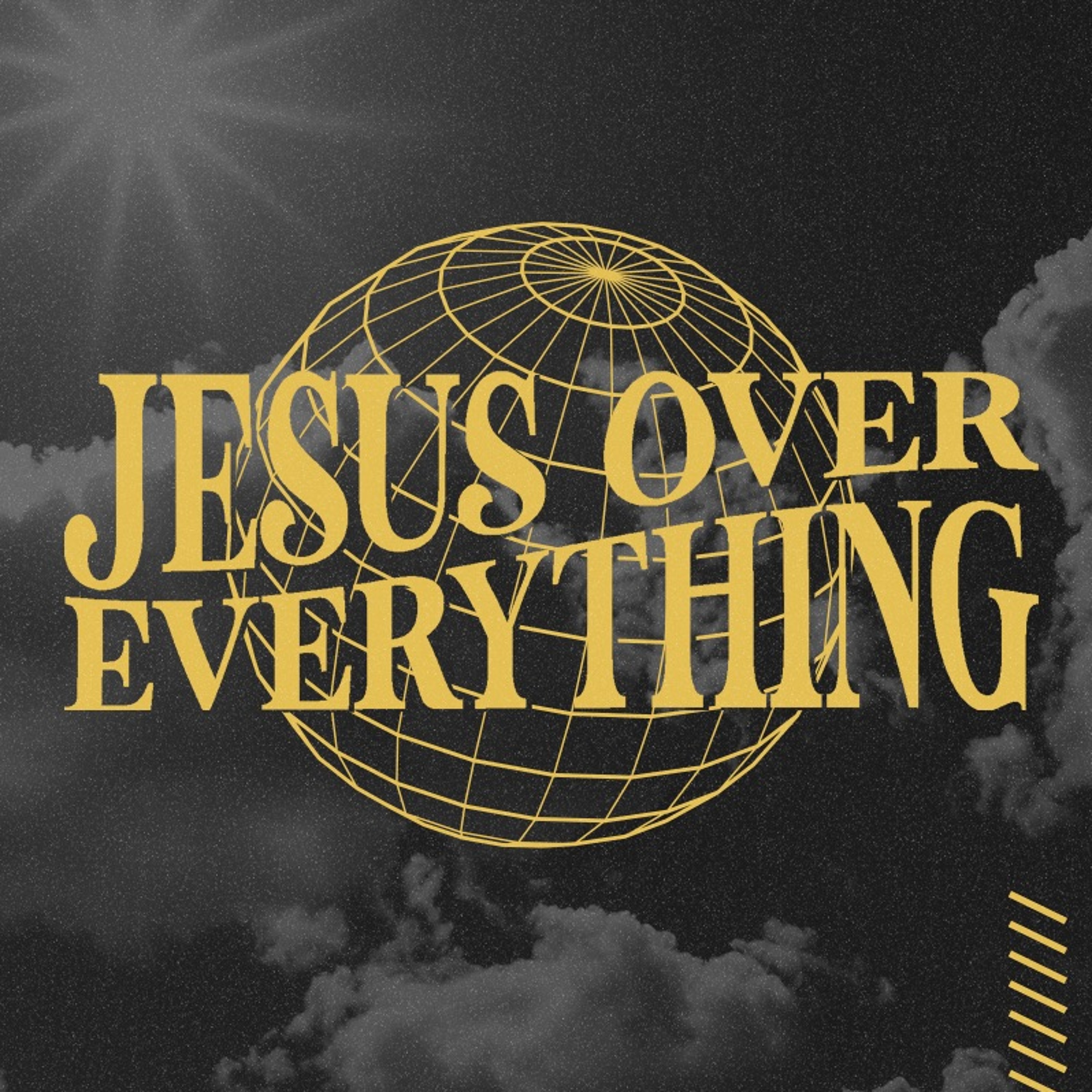516 episodes


Special guest Pastor John Nuzzo joins us for an encouraging message called Pick Your Punctuation. John explains how inflection points in our lives can either drop a "period" or a "comma" in our stories. He makes the case that a "period" can be devastating because we allow terrible moments to define us. If we look to Jesus and trust in Him, then we can find power to turn major life events into "commas" which lead us into a better future. A "comma" reveals how God is not done using us if we should choose to remain faithful. John makes the case that God wants to give us good things, but we need to be steadfast in our posture to receive what He has for us.


In the second sessions of his three part series on Purpose, Dr. John Stanko teaches us how to define our purpose. The first step in defining our purpose is to seek God. Proverbs chapter 2 instructs us to cry out to God for discernment and lift our voices for understanding. Scripture teaches us that discerning the fear of the Lord leads to discovering the knowledge of God. Dr. Stanko also explains why in search of your purpose you should not overlook the simple things, you should be willing to work, and have the courage to face your fears. Believing that God wants you to do something is much different than wanting to do something yourself.


In the sixth and final message of our series on The Temple, Pastor Mel teaches how to cultivate an overcoming worship. What happens to your faith when trouble comes? Preaching through Revelation chapter 4, Mel explains how a durable faith requires worship, and how this kind of worship relies on a revelation of God. The less you know about God the less you will want to worship, while the more you know about God the more you will want to worship. Mel makes the case that your perception of God is incubated in your worship. The defining characteristic of God's people is God's presence, and faithful worship is vertical, horizontal, and reflective.


In a special edition of Leadership Night, our guest speaker Dr. John Stanko teaches how to identify your purpose. Teaching through Acts 6, John explains how being effective means being full of power to achieve results. He goes on to make the case that in order to be effective you must know your purpose. Dr. Stanko supports his claim by walking us through the personal purpose of several key figures in scripture. Jesus came to seek and save the lost. Paul was charged with bringing the gospel to the Gentiles. Peter was entrusted with preaching to the Jews. John the Baptist had the duty of preparing the way for Jesus. What's your purpose?


In the fifth week of our series called The Temple, Pastor Mel examines seven different Hebrew words which are used in the scripture to describe worship. Working primarily through the Psalms, Mel explains the reasons why we worship the way we do. Raising hands during worship is an expression of surrender to, vulnerability towards, and dependence on God. Being physically expressive in your worship of God is not necessary, but it's a natural way to intensify the inner exultation which is at the heart of worship. The message concludes with Mel quoting A. W. Tozer who said, "The goal of every Christian should be to live in a state of unbroken worship."


In the fourth week of our series called The Temple, Pastor Mel preaches about the ark of the covenant which was stored in the innermost sanctum of the temple - the holy of holies. The holy of holies was a place only accessible by the Israelite High Priest, and even the High Priest did not enter lightly. Teaching through Leviticus 16, Mel describes these particular parts of the temple and he explains the processes the priesthood had to observe to maintain it. The message resolves with Mel showing how reverence for this part of the temple is symbolic of the reverence we should have for God today. He explains how the Jewish law was demanding, why God deserves great attention, and how our being intentional raises our awareness.


In the third week of our series called The Temple, Pastor Todd supplies a teaching on the altar of incense. The altar of incense was the last pass before entering the holiest part of the temple. Todd walks us through the Levitical process of sacrifice and explains what it means for our worship today. He talks about why God emphasized certain placement of the altar when designing the structure of the temple, as well as stringent particularity in the design of the altar itself. Todd traces the chain of possession of the sacrificial fire through the various rituals in the temple and shows that it originates from God Himself. The message culminates in the idea that God provides all that we need to worship and the means of sacrifice is not sourced within ourselves.


In the second week of our series on The Temple, Pastor Mel teaches all about the symbolic significance of gates and how they translate to your relationship with God. Gates serve a variety of purposes including protection, authority, and control of access. Psalm 100:4 teaches that we should, "Enter his gates with thanksgiving; go into his courts with praise. Give thanks to him and praise his name." As Christians we should be mature enough that we come into worship with expectancy and we don't need to be stirred up. Holy worship should result in holy obedience, because worship without obedience is little more than a superficial opiate numbing us against the pressures and pains of life.


In this edition of Leadership Night, Mel explains the hallmarks of a high-capacity leader. A high-capacity leader is someone who understands the vision. This kind of person advances the vision because they take ownership through their own expectations rather than from expectations set upon them by a manager. A high-capacity performer will draw the best out of his peers and knows how to win in a healthy way. Mel presents these descriptions and more to help you identify high-capacity leaders. Q&A follows.


In the first message of our series called The Temple, Pastor Mel gives a thorough explanation of what the Temple was, its layout, functions, and rules. He explains how the structure of the Temple was used to denote the holiness of God and our restricted access to God before mediation through Jesus Christ. Preaching through Ephesians 2, Mel goes into detail about how the gospel of Jesus Christ reconciles us to God. Access demands intimacy, and through Jesus Christ we have intimacy with God much like the high priest had in the innermost sanctums of the Temple.


In the final installment of our Jesus Over Everything series, Pastor Jake Schwertfeger from Overland Missions preaches on the sufficiency of Jesus. He presents a thesis that one of the greatest deceptions plaguing the body of Christ today is that we are begging God to receive what Jesus has already freely given and established in us. His message is one of encouragement to embrace what Jesus has already given us and trust Him to work in the most challenging areas of our lives.


In the third message of our series Jesus Over Everything, Pastor Mel explains what it looks like when the Church is in submission to Jesus. When we put Jesus over everything as a church, conflict decreases, health increases, and God's kingdom advances. Mel teaches why the key to healthy relationships is to love sacrificially and resolve conflict biblically. He points out how church health is measured by generosity, salvations, and baptisms. The sermon finishes by highlighting how Jesus was a church planter, Paul was a church planter, the apostles were church planters, and the Great Commission calls on us to be church planters.


In the second message of our series Jesus Over Everything, Pastor Stef preaches a verse-by-verse expository sermon on Colossians 3:1-4. She recalls some of the lessons Mel unpacked from the previous two chapters, and then makes the case for why Jesus should be Lord of our lives. Stef presents a practical dichotomy of what an earthly minded person might say and think over against what a heavenly minded person might say and think. She also explains why the greatest barrier between ourselves and God is not our sin but is our focus. Sin is a barrier, yes, but fundamentally our relationship with God is predicated on our aim. Idolatry is a sin with denotes aim because to have an idol means to allot worshipful focus on someone or something other than Jesus.


"Jesus Over Everything" is our theme as a church for this year. In the first message of our series Jesus Over Everything, Pastor Mel makes the biblical case for the supremacy of Christ. He argues that Jesus is supreme over our lives and over all creation even if we don't accept that He is. Through exposition of Colossians chapters 1 and 2, Mel teaches how Christ is the head of the Church, is the ruler of all kingdoms and all authority, and how Jesus alone is entirely sufficient for us. This section of Colossians also contains the famous warning against being captured by empty human philosophies crafted apart from Jesus, because in Jesus resides all the fullness of God.


In this episode of Leadership Night, Mel walks us through a handful of important lessons we've learned from one of history's great leaders - Martin Luther King Jr. He talks about the wisdom of taking action even when fear makes inaction seem rather tempting. A good leader is a leader committed to both intellectual and character growth. Effective leadership involves reading and learning on a daily basis. Mel fields questions in the second half of the episode, and one of the questions is whether ignorance or wickedness leads to worse leadership decisions. Check out the Back40 Session Mel references here: https://www.youtube.com/watch?v=s4PVWYgMWfE


Preaching through Matthew 11:28-30, Pastor Gilbert teaches us how we can find the deepest form of rest. Rest for our souls comes from doing God's work and daily presenting ourselves as a living sacrifice for His purposes. Doing God's work involves surrendering yourself to the yoke of Jesus Christ and learning from Him. If we try to arrive at spiritual rest without Jesus we will come up empty and be left feeling dissatisfied. The pathway to this much-sought-after peaceful condition has already been laid out by God, we just need to see it, understand it, and practice the faith necessary to walk it.


In the most challenging message of this series, Pastor Mel brings a short sermon on Christ as the suffering servant. It's human nature to want to be powerful and even if we don't seek prestige most of us still want the freedom which comes from being in control. Teaching through selected scriptures, Mel explains how the Christian life is about downward mobility rather than upward mobility. We are called to a narrow path marked out by Jesus as one characterized by powerlessness, humility, and suffering. Only once we deny ourselves and accept this truth do we find real freedom in submission to God.


In the third message of our series "It's a Wonderful Life", Mel discusses the human desire to be seen. Using selected scriptures including the temptation of Jesus in Matthew 4, he teaches why it's better to honor God than seek glory for yourself. Mel explains what it means to be a servant of Christ and reminds us that we are a slave to our source. Towards the end of the message, he shows a video of a little boy who demonstrates what it looks like to take your role seriously - even if your role isn't glorified by others. The conclusion of the sermon is that it's better to be loved by God, be a child of God, and be seen by God than to be famous here on earth.


In the second part of our series called It's a Wonderful Life, Pastor Mel looks at the worldly perspective on wanting to be rich. Generally, the desire for material wealth stems from either wanting to live a life of leisure or not wanting to worry about money. Mel makes the case that what we're really after is freedom and we try to acquire freedom through wealth. It's very common for people to worry about who is going to take care of them, and Pastor Mel explains why we become slaves to those who provide for us. He finishes the message by showing how true freedom comes when we understand that God is our provider.


In a special edition of Leadership Night, Mel teaches principles he has learned from time spent working on his Jeep. Working through a list of ten points, he explains how these principles apply to leadership in business and in your personal life. The ideas include being careful to invest in critical infrastructure before spending on flashier, more attractive purchases: "lockers before light bars", as the Jeep community puts it. He also talks about ways to keep your employees happy at the middle of the pay-scale, how to learn from leaders without merely imitating them, and the danger of starting too many projects at one time. Q&A follows.


In the opening message of our series It's a Wonderful Life, Pastor Mel investigates the meaning of biblical love. He talks about the problems associated with the culture's fantastical infatuation with being "in love." He explores the self-sacrificial love of called agape, and then he explains why it's a bad idea to follow your heart when it comes to loving others well. Preaching through 1 John 4, Mel shows us that love is not about chasing a feeling, but choosing a discipline.


Pastor Christina tells a personal story explaining the negative consequences of envy. Preaching through James chapter 3, she teaches us what we should do if we discover that jealousy is a problem in our own lives. Christina makes it clear jealousy is not an attractive vice, and that it is the product of earthly, unspiritual, and demonic tendencies. She contrasts these attributes with godly wisdom which is pure, peace-loving, gentle, and willing to yield to others.


In the third and final message of our series on Habakkuk, Pastor Mel walks us through the prophet's song detailing the wrath of God. Habakkuk's song inspires fear, awe, and confidence in the glorious power of God. Mel explains the Hebrew term "selah" to indicate a moment of pause and praise. So we get to see the moments when the prophet reflected on the movement of God which adds another dimension of interest to the text. The message includes a powerful testimony from Kathy Eshbaugh, she tells us how her trust in God helped her through unthinkable grief. Mel closes with encouragement for us to take worship seriously because it is our weapon of war.


The second message in our series on Habakkuk brings us exposition of chapter 2. Pastor Mel teaches that it is through faith that a righteous person has life. He draws a distinction between righteousness and pride, citing that righteousness results in firmness, steadiness, fidelity, and steadfastness. Habakkuk cried out to God wondering how long before He will help. The prophet also faces frustration when it looks like the wicked are getting away with their deeds longer than they should. This chapter also presents prophetic warnings against those who build with ill-gotten money as well as those who practice idolatry.


Pastor Mel begins our series on the book of Habakkuk, who was one of the minor prophets of the Old Testament. This oft-neglected book teaches us invaluable wisdom concerning how we should receive God's correction. Habakkuk's prayer presented in the first chapter comes in the form of a complaint. Mel explains to us why it's okay to complain to God when facing difficulties in life. Complaining to God instead of to our neighbors helps preserve us against sins like gossip. In this message Mel teaches why it's better to be corrected by a friend than an enemy - although even correction by an enemy can be a mercy of God. This message concludes with hopeful words from Jesus Christ in Matthew 11, encouraging us to bring everything to God so He can give us rest.


Mel gives strategies for how to lead your team well through an internal crisis. It's important that you gather as much information as possible during the discovery phase. Once you know what's happening, proper communication throughout your team is critical. Bad behaviors like gossip and dishonesty should be struck down as soon as you notice them. One of the most challenging aspects of navigating an internal crisis is terminating someone, and Mel explains the best way to do it. Q&A follows.


Our guest speaker and keynote from She Is Transformed, Andi Andrew, preaches a message about preparation. Teaching through the parable of the ten virgins, Andi explains why we should be prepared for anything. She argues that the unwise walk in presumption while the wise walk in anticipation. Andi also teaches that we should not live on borrowed oil, meaning we should look to Jesus as our source rather than deriving a second-hand source from other people who look to Jesus. The message finishes with a warning to stay alert and keep your eyes fixed on Jesus as your life and our world continue to change.


Pastor Mel finishes our series on 2nd Peter with exposition of chapter 3. This chapter takes a look at end-times prophecy and discusses how we should act as Christians who are expecting the return of Jesus. There will be scoffers who mock the truth of Christ's return and there will be hypocrites who claim themselves to be the saviors of mankind. A proper Christian should understand that God exists outside of time and that one day is as a thousand years to the Lord. Any perceived delay in Christ's return is not a consequence of unfulfilled promises, rather it's a display of God's grace and His desire that all people should come to the knowledge of truth.


The second week of our series on 2nd Peter brings a message explaining the dangers of being driven by your feelings and desires. Mel goes to the Greek to explain the subtleties of illegitimate desire and sensuality. He also discusses the meaning of greed and cautions us against false teachers who love to make personal gains by teaching bad doctrine. Mel explains how false teachers are like unthinking animals, and how they can lure you in with charisma and a clever use of words. The message closes with an antidote to the poison offered by false teachers. This remedy includes living a life of confession and repentance as well as living a life governed by truth and not by your own feelings.


What makes a good leader? What are the character traits of a good leader? What are some skills we can learn to develop our leadership? Mel teaches about these topics and more in this episode of Leadership Night. Mel and the audience discuss the importance of self-awareness, the necessity of asking for feedback, and the value of delegation. They also explore the importance of leaders taking on new responsibilities in order to avoid stagnation and promote growth. Q&A follows.